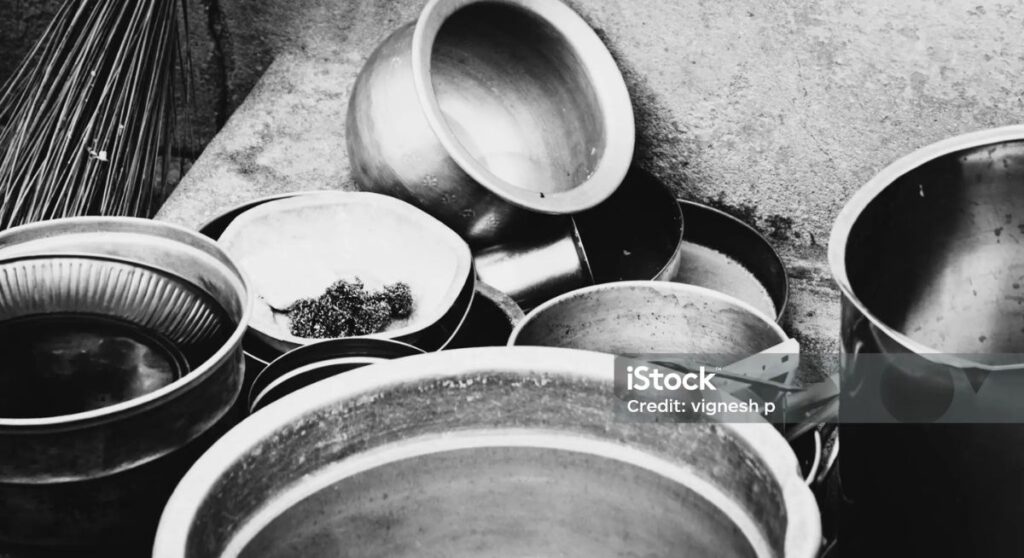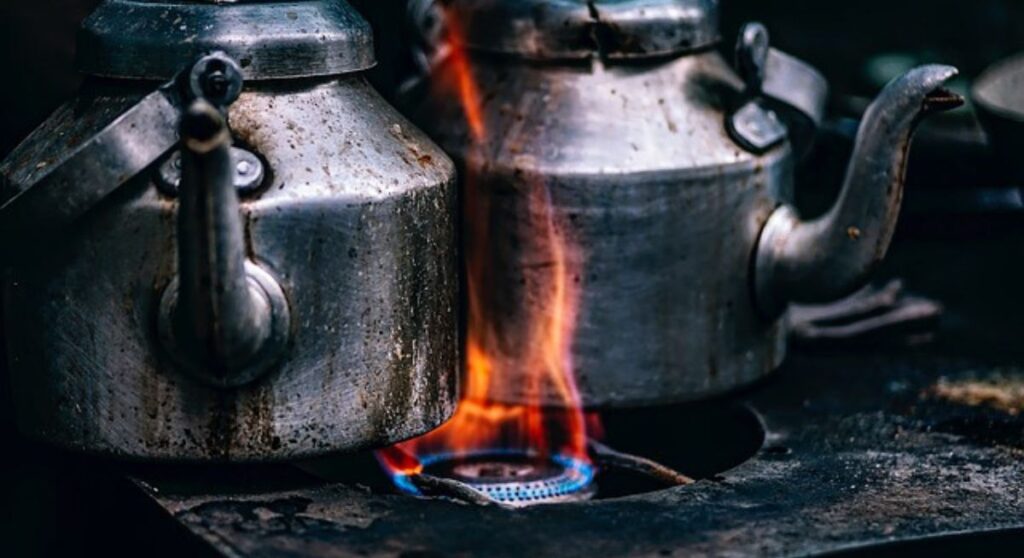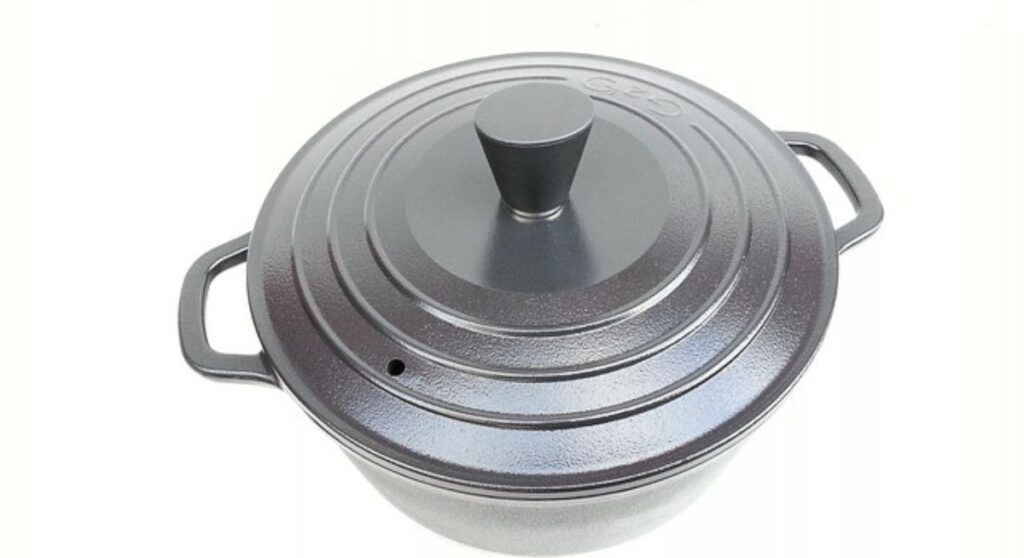Introduction
9 Health Risks of Cooking in Aluminium Utensils You Should Know
Cooking in aluminium utensils may seem harmless, but it can pose serious health risks. Discover 9 potential dangers of using aluminium cookware and what you can do to stay safe.
Aluminium utensils are widely used in kitchens around the world due to their affordability, light weight, and good heat conductivity. However, research has raised concerns about the health risks of cooking in aluminium utensils, especially when used over time or with acidic foods.
In this article, we’ll explore 9 potential health risks associated with aluminium cookware and what you should know to make safer choices in your kitchen.
9 Health Risks of Cooking in Aluminium Utensils You Should Know

1. Aluminium Leaching into Food
When aluminium utensils are exposed to heat, acids (like lemon or tomatoes), or salt, they can leach small amounts of aluminium into your food. Over time, this accumulation in the body may lead to health problems.
2. Possible Link to Alzheimer’s Disease
Some studies have suggested a correlation between high aluminium levels in the brain and Alzheimer’s disease. While the evidence is not fully conclusive, prolonged exposure to aluminium through food may contribute to neurological issues.
3. Kidney Dysfunction Risk
People with impaired kidney function are at greater risk because their bodies can’t eliminate excess aluminium effectively. This can lead to aluminium build-up and toxicity, which may further damage the kidneys.
4. Potential for Bone Disorders
High aluminium levels can interfere with calcium absorption, which may result in weaker bones or osteomalacia (softening of bones). This is particularly concerning for older adults and individuals with low bone density.
5. Risk of Anemia
Aluminium may also affect iron absorption, potentially leading to anemia over time. Cooking regularly in aluminium utensils, especially if the cookware is old or damaged, could increase this risk.
6. Toxicity in Children
Children are more vulnerable to aluminium exposure. Their developing bodies and brains can be more sensitive to even low levels of aluminium toxicity, which may affect growth or cognitive development.
7. Interaction with Acidic Foods
Cooking acidic foods like tomatoes, vinegar-based dishes, or citrus in aluminium pots can significantly increase aluminium leaching. This not only alters the taste of food but also increases the risk of ingestion.
8. Poor Quality or Uncoated Aluminium Cookware
Cheaper aluminium cookware often lacks proper coating or anodization, making it more likely to leach metal. Non-anodized aluminium utensils are more reactive and therefore less safe for daily use.
9. Long-Term Exposure Concerns
While small amounts of aluminium may not cause immediate harm, long-term exposure is a concern. Cumulative effects over years may contribute to chronic health issues, particularly for people with pre-existing conditions.
🛡️ How to Reduce Health Risks from Aluminium Cookware
To reduce health risks from aluminum cookware, avoid cooking acidic foods in it, opt for anodized aluminum, and use alternative materials like stainless steel or cast iron when possible.
Here’s a detailed guide to help you minimize exposure to aluminum while still benefiting from its convenience:
🧠 Why Aluminum Cookware Raises Concerns
- Aluminum can leach into food, especially when cooking acidic or salty dishes like tomato sauce or vinegar-based recipes.
- Long-term exposure to high levels of aluminum has been linked to neurological issues, bone disorders, and cellular stress.
- Children and individuals with kidney disease are more vulnerable to aluminum accumulation.
✅ Practical Tips to Reduce Risks
- Avoid Cooking Acidic Foods in Bare Aluminum
- Acidic ingredients increase leaching. Use glass, ceramic, or stainless steel for these dishes.
- Choose Anodized Aluminum Cookware
- Anodization creates a non-reactive surface that prevents aluminum from leaching into food.
- Use Non-Aluminum Alternatives When Possible
- Opt for stainless steel, cast iron, or ceramic cookware for everyday use.
- Don’t Store Food in Aluminum Pots
- Especially avoid storing leftovers in aluminum cookware, as prolonged contact increases leaching.
- Avoid Scratching or Damaging the Surface
- Scratches expose raw aluminum. Use wooden or silicone utensils and avoid abrasive cleaners.
- Replace Old or Worn-Out Aluminum Cookware
- Over time, protective coatings degrade, increasing the risk of leaching.
🔄 Safer Alternatives to Consider
| Material | Benefits | Notes |
| Stainless Steel | Durable, non-reactive, easy to clean | Great for most cooking tasks |
| Cast Iron | Adds iron to food, excellent heat retention | Requires seasoning |
| Ceramic | Non-toxic, good for baking and light cooking | May chip over time |
| Glass | Ideal for baking and acidic foods | Fragile, not for stovetop use |
Would you like help comparing popular anodized aluminum brands or exploring trending cookware options in India?
🛡️ Tips to Minimize Aluminium Exposure
Reducing your exposure to aluminium from cookware is easier than you think. Follow these practical tips to protect your health without compromising your cooking experience:

1. Switch to Anodized Aluminium Cookware
Anodized aluminium has a non-reactive surface that prevents leaching. It’s a safer alternative to raw aluminium utensils.
2. Avoid Cooking Acidic or Salty Foods in Aluminium
Ingredients like tomatoes, vinegar, tamarind, and salt accelerate aluminium leaching. Use stainless steel or ceramic cookware for these dishes.
3. Use Safer Cookware Alternatives
Opt for non-toxic materials such as:
• Stainless Steel – Durable and non-reactive
• Cast Iron – Adds iron to food and retains heat well
• Ceramic or Glass – Ideal for baking and acidic recipes
4. Don’t Store Food in Aluminium Utensils
Transfer leftovers to glass or stainless steel containers to prevent prolonged contact with aluminium.
5. Avoid Scratching the Surface
Scratches expose raw aluminium. Use soft utensils like wood or silicone and avoid abrasive cleaning pads.
6. Replace Old or Damaged Cookware
Worn-out aluminium pots may lose their protective coating, increasing the risk of metal leaching.
7. Check for Food-Safe Certification
Look for cookware labeled as “food-grade” or “BIS certified” to ensure safety standards are met.
📈 Trending Insight: Cookware Choices in India (2025)

🔄 Shift Toward Safer Materials
• Stainless steel remains the top choice for Indian households due to its durability, non-reactive nature, and affordability.
• Cast iron is gaining popularity for its health benefits, especially among those seeking iron-rich cooking options.
• Ceramic and glass cookware are trending for baking and serving acidic foods safely.
🌿 Health & Sustainability Drive Choices
• Consumers are actively avoiding untreated aluminium due to its potential health risks.
• Anodized aluminium is still used but primarily for non-acidic cooking.
• Eco-conscious buyers prefer non-toxic, recyclable materials that align with sustainable living.
📊 Market Growth & Urban Influence
• The Indian kitchenware market is growing at a CAGR of 10.5%, driven by urbanization, nuclear families, and online shopping.
• PwC’s 2025 consumer report highlights a surge in demand for health-focused kitchen products, especially in metro cities.
🛒 Online Searches & Buying Behavior
• Searches for “safe cookware for Indian cooking,” “non-toxic utensils,” and “best cookware for health” have spiked in 2025.
• Influencers and health experts are promoting stainless steel and cast iron as ideal replacements for aluminium.
🧠 Conclusion
While aluminium cookware is convenient, its health risks are worth considering. By making informed choices and switching to safer alternatives, you can protect your family’s well-being without compromising on cooking quality.
❓FAQs
Q1. Is anodized aluminium cookware safe?
Yes, anodized aluminium has a protective layer that prevents leaching and is considered safer.
Q2. Can aluminium cause cancer?
There is no direct evidence linking aluminium to cancer, but long-term exposure may contribute to other health issues.
Q3. What foods should I avoid cooking in aluminium?
Avoid acidic foods like tomatoes, vinegar-based dishes, and citrus-based recipes.

